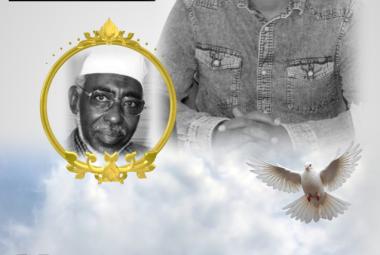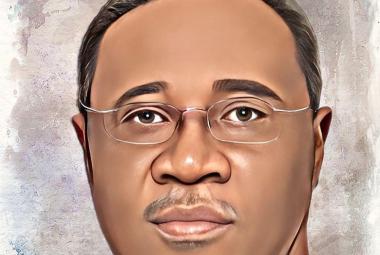You wake up one morning. Any morning. You open your eyes and take a look around your room. You check the time on your watch, alarm clock or mobile phone. Maybe there is a TV, radio, air conditioner, fan, curtains, bedside lamp in your room. None of this is produced by your country. You listen to the news on television from your country or elsewhere on a channel package to which you have subscribed from a foreign company. Your sheets are probably Chinese, or if they were woven in your country, it is by a foreign company. Your mattress may be manufactured in your country, but by a foreign company. Only maybe your bed was made by a local craftsman with local wood. But it may have been made in China. The tiles you put your feet on are imported. You go to your bathroom. Your sink, your toilet, your shower or bathtub, everything is imported. Just like your toothbrush, your toothpaste, your perfume, cotton swabs, your nail clippers, your medicine, your glasses. If you're a woman, maybe your hair too. Only maybe your soap was made in your country. The water and electricity you use are managed by foreign companies. You dress in trousers, a shirt, perhaps sewn by a local tailor, but in fabrics made elsewhere. You iron them with an imported iron. You may be wearing a suit, but most often imported from Europe or Asia. Like your shoes and your socks. And your underwear. You are going to have your breakfast. Often bread, with butter, jam, coffee, tea or cocoa, sugar. Maybe pastries. Only coffee, cocoa and sugar are produced in your country, but most often by multinationals. The wheat for your bread or your croissants comes from elsewhere. Just like the plates, cups, spoons, forks, glasses you use for all your meals. The armchairs in your living room may have been made in your country, but most often in imported materials. They can also come from China or Turkey.
You leave your home, take your car, or a taxi, a bus, a gbaka, a motorbike, a bicycle. None of these vehicle types were manufactured in your country. Not even the tires or the windows. You are driving on a road, a bridge, built by a foreign company. You arrive at your office. All papers, pens, computers, everything you need to work is imported. If you are not a civil servant, chances are that your company is foreign. When you call, there is a two out of three chance that your network is that of a foreign company. In the evening, on your way home, you will stop at a supermarket for shopping. It belongs to a large European group or to Lebanese or Turkish or Chinese. And everything in there has been imported. Except maybe some fruits and vegetables. At home, you will watch a football match on a foreign channel. You only watch matches of European teams. Those in your country are so boring. And anyway your best players all play in Europe. You will eat rice, fish, meat, pasta, you will drink wine, beer, or "sweets", all imported or manufactured here by foreign firms. Your toothpicks are also imported. Out of coquetry you may only drink mineral water. Produced by a foreign company. You may make love using a condom, necessarily made in Asia or Europe. If you are from a high social level, your children are probably studying in Europe, Asia or America. You may have a house there. You therefore regularly send money abroad for your children, or to maintain your residence and pay the related taxes. You necessarily receive treatment outside your country, and obviously you spend your holidays abroad. Most often in Europe, America or Asia. You are traveling on foreign companies
Whether you are rich or poor, chances are you are a Christian or a Muslim. And your dearest wish, before you die, is to see Mecca, Rome, Lourdes or Jerusalem. And, whether you are rich or poor, you will put a good part of your income aside to make this pilgrimage. That is to say, to go and offer these sums to these cities.
Why do we complain about living in poor countries?
By Venance Konan
*This article has been translated from French into English by Marcus Boni Teiga




















